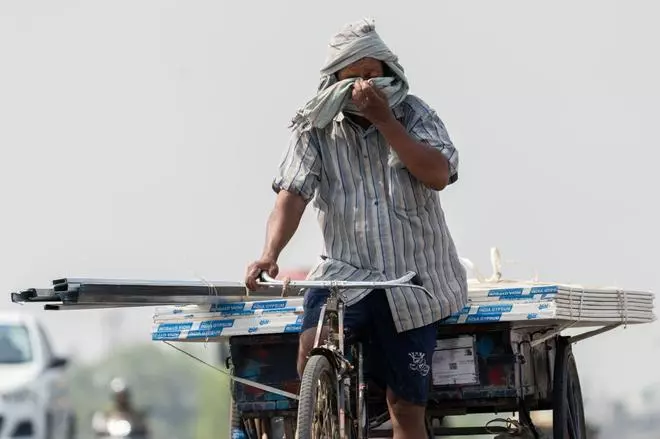Tap water is boiling hot and air conditioners are not having the desired effect. Such is the severity of the Indian summer this year, that even at night, cities in the northern plains are not cooling down. The relentless heat wave, with little to no rainfall, is exacerbated by the Urban Heat Island phenomena, a byproduct of climate change and excessive urban infrastructure.
A recent study by the Centre for Science and Environment (CSE) titled ‘Decoding the Urban Heat Stress among Indian cities’, tracked data in 6 major cities - Bengaluru, Chennai, Delhi, Hyderabad, Kolkata and Mumbai – and suggested urgent measures to protect public health.
While a heat index of 41° C is considered dangerous for human health, temperatures in Delhi have been hovering over that for most part of this season, rendering the Urban Heat Island phenomena stronger at night.
“Hot nights are as dangerous as mid-day peak temperatures. People get little chance to recover from day-time heat if temperatures remain high overnight. A study published in the Lancet Planetary Health has noted that the risk of death from excessively hot nights would increase nearly six-fold in future,” said Avikal Somvanshi, Senior Programme Manager, Urban Lab, CSE.
Deadly combo
The heat stress is not just about rising temperatures. It is a deadly combination of air temperature, land surface temperature and relative humidity that leads to acute thermal discomfort and heat stress in cities, according to the CSE report. With exception of Bengaluru, in all five cities studied by CSE, rising humidity levels have worsened the heat stress.

a heat index of 41°C is considered dangerous for human health | Photo Credit: ANINDITO MUKHERJEE
Trends in heat stress will further worsen in cities with climate change, according to the Intergovernmental Panel on Climate Change (IPCC), Working Group-I, Sixth Assessment Report (AR6 WG-I). This is due to reduced ventilation, heat trapping by closely spaced tall buildings, heat generated directly from human activities, heat-absorbing properties of concrete and urban building materials, and limited vegetation.
Action plans
According to CSE, heat management action plans are urgently needed to expand green areas and waterbodies, reduce thermal load on buildings and improve thermal comfort, and implement emergency measures during heat wave episodes to protect public health.
India is not the only country facing the brunt of a severe heatwave. Leading athletes, Olympic champions and scientists in a report called ‘Rings of Fire’, have warned that intense heat at the Paris Olympics 2024 could pose a serious threat to the well-being of participants.





Comments
Comments have to be in English, and in full sentences. They cannot be abusive or personal. Please abide by our community guidelines for posting your comments.
We have migrated to a new commenting platform. If you are already a registered user of TheHindu Businessline and logged in, you may continue to engage with our articles. If you do not have an account please register and login to post comments. Users can access their older comments by logging into their accounts on Vuukle.